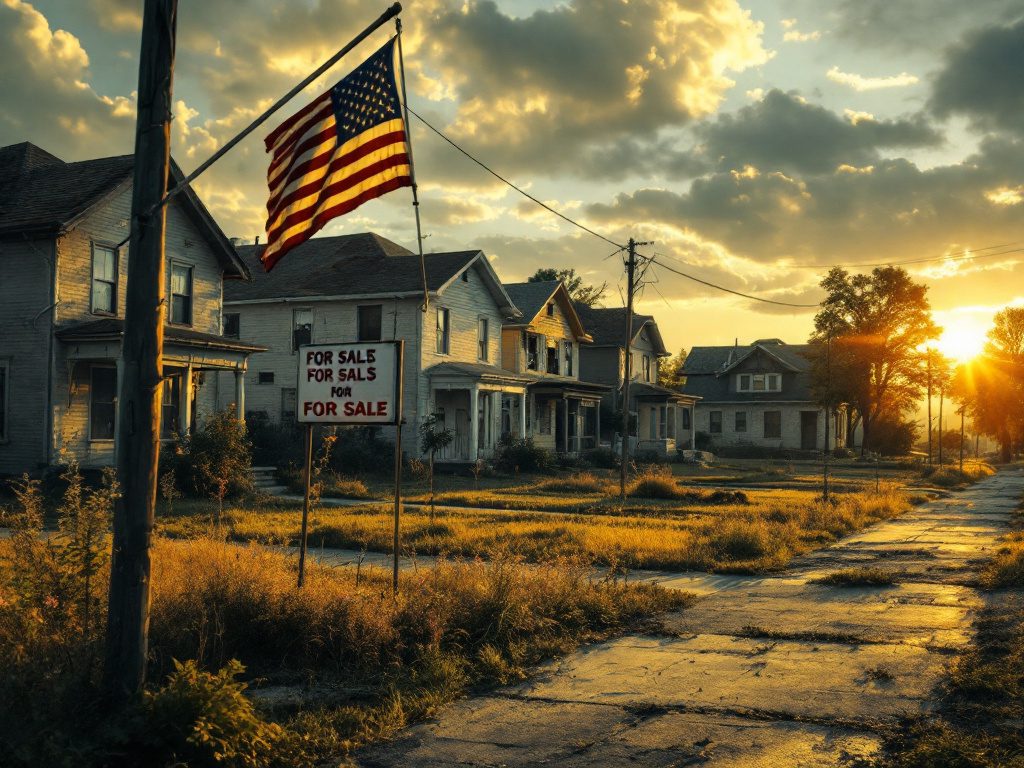The Quiet Sabotage of Fair Housing Progress
Imagine receiving a letter telling you that the protections designed to ensure equal access to housing for your family just vanished overnight. In early 2025, that’s what happened to tens of thousands of Americans relying on local fair housing organizations. The Department of Housing and Urban Development (HUD) abruptly canceled 78 longstanding Fair Housing Initiative Program (FHIP) grants without warning or explanation, yanking lifelines from groups fighting housing discrimination in 33 states. The move stunned not just nonprofit advocates, but also a bipartisan network of state leaders who understand that America’s promise of equality begins at home.
Attorney General Kwame Raoul of Illinois condemned the move, sharply criticizing the Trump-appointed HUD officials behind the decision: “I stand with my fellow attorneys general to oppose the Trump administration’s unlawful overreach in canceling this funding.” His sentiment was echoed by Maryland’s Attorney General Anthony G. Brown and his peers in 20 other states, who quickly filed an amicus brief in the First Circuit, demanding action to restore the funds and the principle of fair treatment they represent.
Why such urgency? Because those grants aren’t just bureaucratic line items—they are the financial backbone for hundreds of organizations that combat everything from racially motivated evictions to discriminatory mortgage lending. As Harvard urban policy professor Dr. Megan Sandel explains, “The infrastructure for fair housing is held together by often-modest federal grants. Without them, there is no enforcement and no recourse for families illegally shut out of opportunity.”
Who Pays When Protections Vanish?
Across the country, local groups—like Baltimore Neighborhoods United and the Equal Rights Center—were left reeling. Their work, often performed on shoestring budgets, ranges from investigating redlining complaints to representing tenants illegally barred from apartments because of their race, disability, or family status. Suddenly, state collaboration with these nonprofits was thrown into chaos, as noted by Attorney General Brown, who highlighted specific Maryland organizations at risk: “Without this support, Maryland families stand to lose key advocates in their fight for justice.”
Discrimination in housing isn’t merely a numbers game—it’s a daily reality for millions. The National Fair Housing Alliance notes that complaints of bias have reached record highs in the past four years, driven by rising rents, economic uncertainty, and persistent systemic racism. HUD’s sudden funding freeze did not come after a considered, public debate; it landed without warning, upending decades-long partnerships and signaling to communities of color, people with disabilities, and low-income families that their rights are expendable.
“When HUD abruptly revoked our funding, it felt like turning out the lights on hope itself. Justice is meaningless if those targeted by discrimination can’t enforce their rights.” — Shanna Smith, Executive Director, National Fair Housing Alliance
What’s at stake goes beyond paperwork. As legal historian Richard Rothstein reminds us in his seminal work, The Color of Law, American history is littered with examples of government-sanctioned segregation. It was only persistent, organized advocacy—often funded by the very grants now under threat—that forced change. Pulling the plug on these grants, warns Rothstein, “signals a dangerous return to neglect and tacit acceptance of bias.”
A closer look reveals that HUD justified its move citing an interim Supreme Court ruling in an entirely separate case, suggesting a bureaucratic sleight-of-hand rather than a principled reassessment. The District Court, initially compelled by the evidence and arguments of harm, issued a temporary restraining order to restore funding—but just weeks later, HUD convinced the court to lift the restraint, exploiting legal technicalities over urgent community need.
Turning Back the Clock: The Real-World Consequences
The human cost of gutting enforcement of fair housing laws ripples far beyond a few shuttered offices. When watchdog groups cannot investigate discriminatory landlords, hold banks accountable for predatory lending, or educate renters on their rights, the entire community suffers. Vulnerable residents are pushed further to society’s margins, locked into cycles of poverty, segregation, and alienation.
Modern fair housing efforts emerged out of the painful lessons of the Civil Rights era. Without mechanisms to enforce the Fair Housing Act of 1968, the law was little more than symbolic. Progress required targeted federal resources, local partnerships, and persistent pressure—especially in hostile political environments. “The battle for equal housing opportunity has always been two steps forward, one step back,” says University of Chicago sociologist David Williams. “Decisions like HUD’s set us back a decade or more, with impacts we’ll feel for a generation.”
It’s worth noting, too, that these are not abstract beltway fights. Where local agencies lost funding in February, reports quickly surfaced of rising complaints with fewer resolved cases and longer wait times. Families in Maryland, Arizona, and Illinois now struggle to access basic information on their housing rights, and those experiencing discrimination are too often forced to bear it in silence.
Progressives understand that equality isn’t self-sustaining—it’s the result of constant vigilance, community partnership, and meaningful investment. Revoking fair housing funding betrays not only legal obligations but also the moral cornerstone of the American experiment. Bold leadership from attorneys general is more than a political gesture; it’s a line drawn in the sand for what kind of society we want to be.
Policy scholars and civil rights activists argue that now is a time for Congress to shore up these essential protections rather than allowing them to be chipped away by shortsighted policy, bureaucratic indifference, or naked political calculation. As the coalition of 21 attorneys general urged in their brief, reinstating grant funding is not simply an administrative exercise, but a restoration of faith in fair play, due process, and the unfulfilled promise of American democracy.

